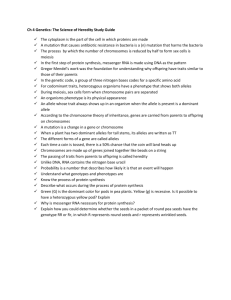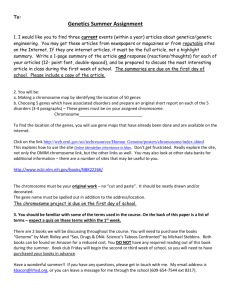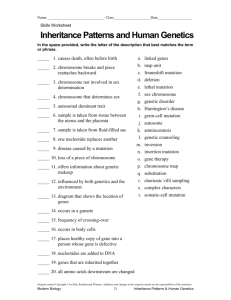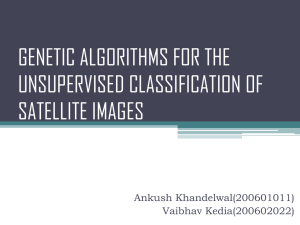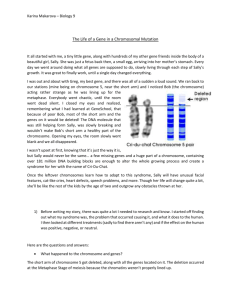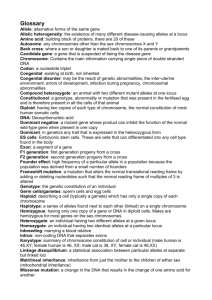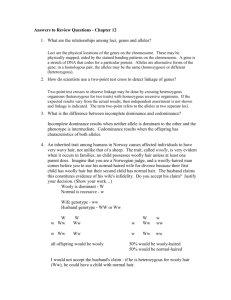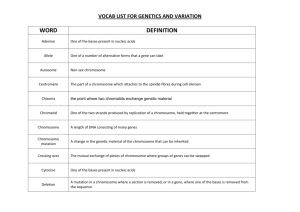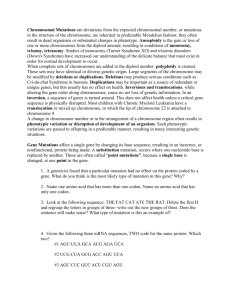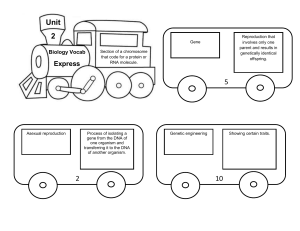Genetics Vocabulary
advertisement
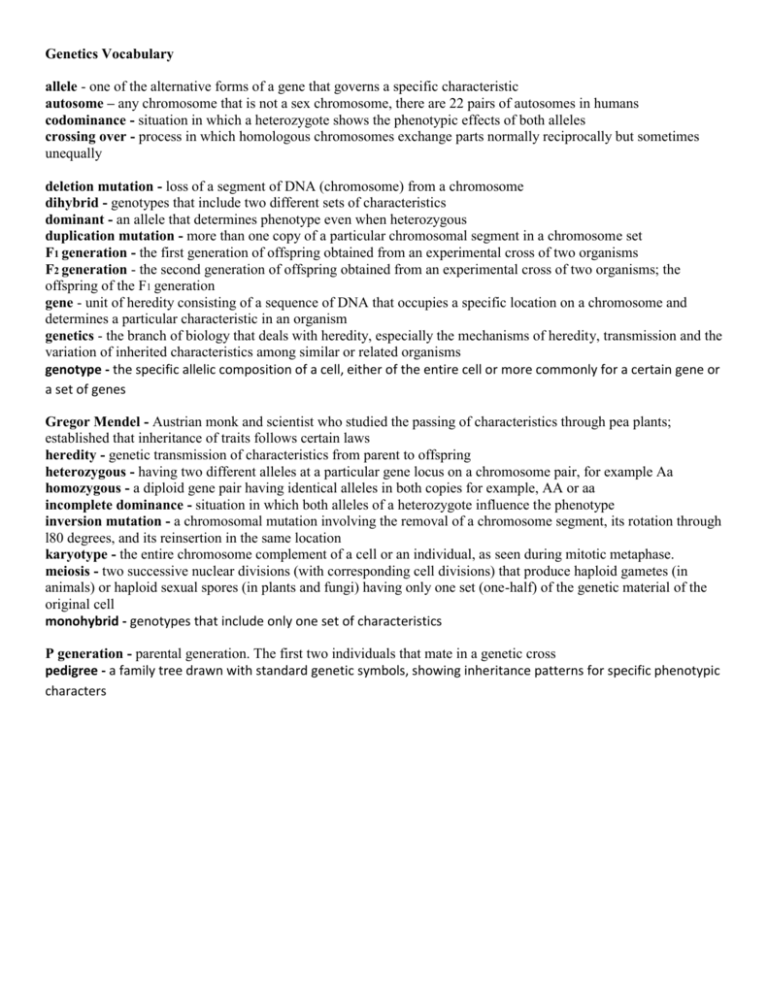
Genetics Vocabulary allele - one of the alternative forms of a gene that governs a specific characteristic autosome – any chromosome that is not a sex chromosome, there are 22 pairs of autosomes in humans codominance - situation in which a heterozygote shows the phenotypic effects of both alleles crossing over - process in which homologous chromosomes exchange parts normally reciprocally but sometimes unequally deletion mutation - loss of a segment of DNA (chromosome) from a chromosome dihybrid - genotypes that include two different sets of characteristics dominant - an allele that determines phenotype even when heterozygous duplication mutation - more than one copy of a particular chromosomal segment in a chromosome set F1 generation - the first generation of offspring obtained from an experimental cross of two organisms F2 generation - the second generation of offspring obtained from an experimental cross of two organisms; the offspring of the F1 generation gene - unit of heredity consisting of a sequence of DNA that occupies a specific location on a chromosome and determines a particular characteristic in an organism genetics - the branch of biology that deals with heredity, especially the mechanisms of heredity, transmission and the variation of inherited characteristics among similar or related organisms genotype - the specific allelic composition of a cell, either of the entire cell or more commonly for a certain gene or a set of genes Gregor Mendel - Austrian monk and scientist who studied the passing of characteristics through pea plants; established that inheritance of traits follows certain laws heredity - genetic transmission of characteristics from parent to offspring heterozygous - having two different alleles at a particular gene locus on a chromosome pair, for example Aa homozygous - a diploid gene pair having identical alleles in both copies for example, AA or aa incomplete dominance - situation in which both alleles of a heterozygote influence the phenotype inversion mutation - a chromosomal mutation involving the removal of a chromosome segment, its rotation through l80 degrees, and its reinsertion in the same location karyotype - the entire chromosome complement of a cell or an individual, as seen during mitotic metaphase. meiosis - two successive nuclear divisions (with corresponding cell divisions) that produce haploid gametes (in animals) or haploid sexual spores (in plants and fungi) having only one set (one-half) of the genetic material of the original cell monohybrid - genotypes that include only one set of characteristics P generation - parental generation. The first two individuals that mate in a genetic cross pedigree - a family tree drawn with standard genetic symbols, showing inheritance patterns for specific phenotypic characters

